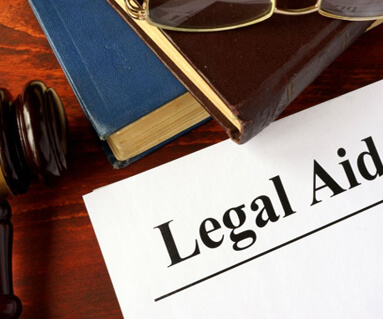
Legal aid is there to help individuals meet the cost of seeking professional advice, family mediation and representation in court or a tribunal. There are various cases and circumstances surrounding the eligibility for legal aid, and in our latest post, we discuss this topic in further detail.
In order to qualify for legal aid, you will typically need to show evidence that you cannot afford to pay the legal costs yourself. There are, however, cases where you will qualify for legal aid, regardless of your financial position:
Mental health tribunals
Children in care
Child abduction
Cases That Qualify for Legal Aid
There are various circumstances where you may qualify for legal aid:
Being arrested, charged or questioned by the police
Representation at a mental health tribunal or inquest
Homelessness or losing your home
Domestic violence
Forced marriage
Risk of a child in your family being taken to care
Poor quality care you have received due to age, disability or special educational needs
Discrimination
Seeking asylum
Challenging the way the government has made a decision about you
Appealing a decision made by the social security tribunal about your benefits to the Upper Tribunal, Court of Appeal or Supreme Court
In rare and exceptional circumstances, you may be able to receive legal aid for other cases if you can prove that not receiving legal aid would infringe your rights under the European Convention on Human Rights (ECHR, or your EU rights to legal representation.
Does Legal Aid Cover all Costs?
Legal aid may not cover all costs of the case, and in some circumstances, you may need to pay some costs upfront. Additionally, if you win money or property from your case, you may have to pay some of the cost back.
Claiming for Legal Aid
Your legal advisor or family mediator will apply for legal aid on your behalf. If the application is successful, the government will pay the costs directly.
To ensure your legal advisor can apply for legal aid on your behalf, you will need to bring information on the benefits you receive, your income, savings and spending – shown by payslips and bank statement and your National Insurance number. If you have a partner, you will need to bring the same details for them.
Your legal advisor may also ask you to bring any documents relating to your case.
What if I Don’t Qualify For Legal Aid
In circumstances where you do not qualify for legal aid, but require professional advice, you can seek free help from Citizens Advice, Advice Now and the Law Centres Network. You can check if you can get legal aid on the .gov website.
Broadbents Solicitors
Here at Broadbents Solicitors, we cover various fields of law and pride ourselves on giving fast and reliable legal advice when you need it most.
Please contact us today on Alfreton 01773 832 511, Derby 01332 369 090, Heanor 01773 769 891. Alternatively, you can send your enquiry form through to our online contact form and we’ll be in touch shortly.






